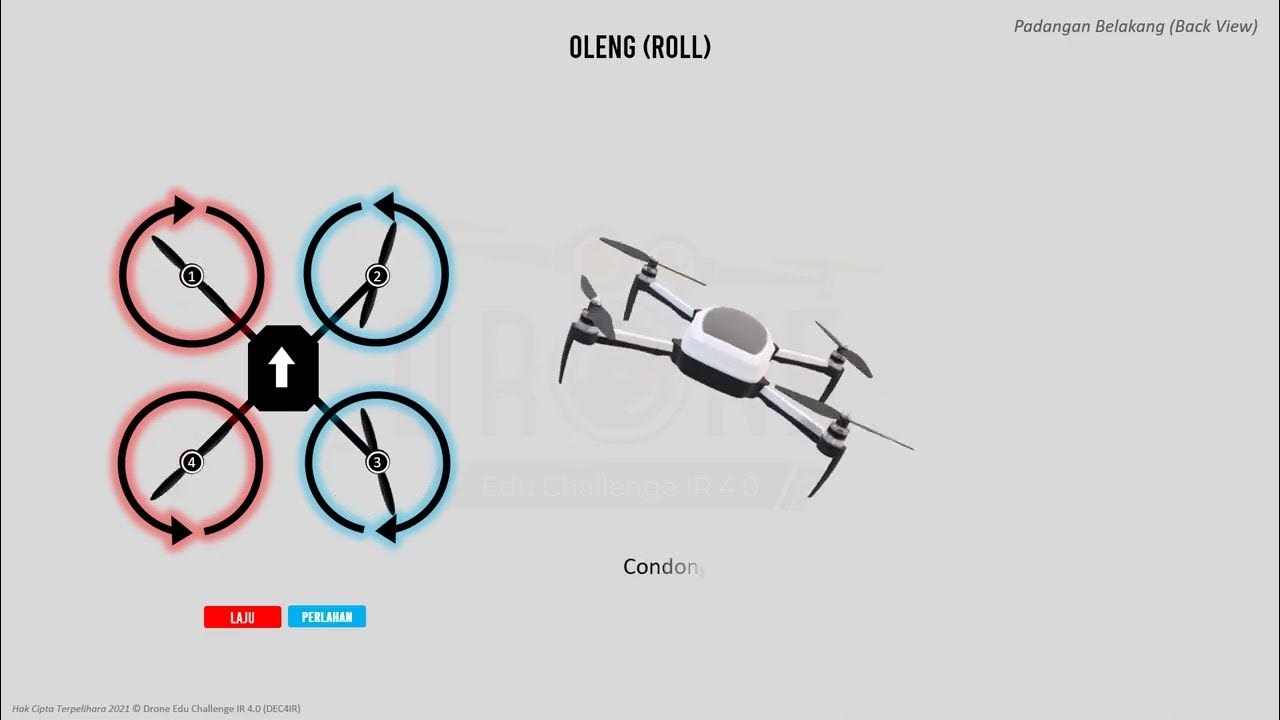Private Pilot Tutorial 3: Principles of Flight
Summary
TLDRThis flight training tutorial delves into the three fundamental principles of aerodynamics essential for safe flight maneuvers. It covers atmospheric pressure's role in lifting aircraft and influencing instruments like the altimeter and airspeed indicator. The tutorial explains concepts like standard and non-standard pressure, temperature lapse rates, and the importance of recalibrating instruments for accurate altitude readings. It also explores Newton's laws of motion, the Magnus effect, and Bernoulli's principle to illustrate how lift is generated. The script discusses airfoil design, angle of attack, and the impact of tip vortices on lift, offering insights into aerodynamic balance and aircraft performance.
Takeaways
- 🌪️ Aerodynamics are crucial for a pilot to safely execute maneuvers and understand the forces acting on an aircraft in flight.
- 📘 Atmospheric pressure is a fundamental factor in weather changes and is essential for lifting an aircraft and operating flight instruments.
- 🌡️ Standard atmospheric pressure at sea level is 29.92 inches of mercury, and deviations from this are referred to as non-standard pressure.
- ⚖️ Air density, affected by pressure, temperature, and humidity, impacts the performance of an aircraft's engine and overall flight.
- 📊 Density altitude is calculated by adjusting pressure altitude for non-standard temperature, reflecting air density's effect on aircraft performance.
- 🔄 Newton's laws of motion are foundational in explaining how forces interact with objects, including the motion of airplanes.
- 🌀 The Magnus effect demonstrates how a wing's rotation in air creates a pressure differential, contributing to lift.
- 💨 Bernoulli's principle states that faster-moving fluids exert less pressure, which helps to explain the lift generated by an airfoil.
- 🛫 The design of an airfoil, including its leading and trailing edges, camber, and profile, influences its aerodynamic characteristics and lift generation.
- 🔄 Angle of attack is the position of the wing's chord line relative to the wind and significantly affects lift and the center of pressure.
- 🌀 Tip vortices are a phenomenon where high-pressure air flows towards low-pressure areas around the wingtip, creating a downwash and reducing lift.
- 🛠️ Winglets and tapered wingtips are design features that help counteract the negative effects of tip vortices and improve aerodynamic efficiency.
Q & A
What are the key principles of aerodynamics discussed in the flight training tutorial?
-The key principles of aerodynamics discussed include atmospheric pressure, the effects of pressure, temperature, and humidity on air density, and the three basic theories of flight: Newton's laws of motion, the Magnus effect, and Bernoulli's principle.
Why is understanding atmospheric pressure important for pilots?
-Understanding atmospheric pressure is crucial for pilots because it helps to lift an aircraft and actuate important flight instruments such as the altimeter, airspeed indicator, vertical speed indicator, and manifold pressure gauge.
What is the standard atmospheric pressure at sea level?
-The standard atmospheric pressure at sea level is 29.92 inches of mercury or 1013.2 millibars.
What is the significance of the standard temperature lapse rate in aviation?
-The standard temperature lapse rate, which is a decrease of approximately 3.5 degrees Fahrenheit or 2 degrees Celsius per thousand feet up to 36,000 feet, is significant for pilots as it helps them understand how temperature changes with altitude.
How does the standard pressure lapse rate affect aircraft performance?
-The standard pressure lapse rate, which is a decrease of approximately one inch of mercury per 1000 feet of altitude gain up to 10,000 feet, affects aircraft performance by influencing the calibration of aircraft instruments and the density of the air.
What is meant by non-standard pressure in aviation?
-Non-standard pressure refers to any pressure that deviates from the standard atmospheric pressure, which requires recalibration of aircraft instruments to ensure accurate readings.
How does density altitude affect aircraft performance?
-Density altitude, which is pressure altitude corrected for non-standard temperature, affects aircraft performance by influencing the density of the air, which in turn impacts engine and aircraft performance.
What is the Magnus effect and how does it relate to lift in aircraft?
-The Magnus effect is a phenomenon where a rotating cylinder in a fluid creates a movement of the fluid due to the difference in airspeed over and under the wing, leading to higher pressure at the bottom and lower pressure on top, thus generating lift.
What is Bernoulli's principle and how does it explain lift in aircraft?
-Bernoulli's principle states that the faster a fluid moves, the less pressure it has. In the context of aircraft, faster moving air over the top of the wing creates a low-pressure area, which results in lift.
What is an airfoil and how does its design affect flight?
-An airfoil is a structure designed to obtain reaction from the air through which it moves. Its design, including the leading and trailing edges, camber, and angle of attack, significantly affects flight characteristics such as lift, drag, and stability.
How do winglets help in reducing the negative effects of tip vortices?
-Winglets can be added to the tips of airfoils to reduce the flow that leads to the formation of tip vortices. They act as a barrier, preventing the high-pressure air from the bottom of the wing from flowing to the low-pressure area on top, thus reducing the downwash and improving lift efficiency.
Outlines

This section is available to paid users only. Please upgrade to access this part.
Upgrade NowMindmap

This section is available to paid users only. Please upgrade to access this part.
Upgrade NowKeywords

This section is available to paid users only. Please upgrade to access this part.
Upgrade NowHighlights

This section is available to paid users only. Please upgrade to access this part.
Upgrade NowTranscripts

This section is available to paid users only. Please upgrade to access this part.
Upgrade Now5.0 / 5 (0 votes)





